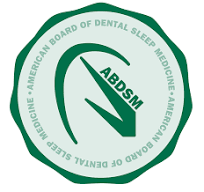Here's Why You Snore
Intermittent snoring may be caused by temporary conditions such as blocked nasal passages during allergy season, a sinus infection, or when you consume too much alcohol. If, however, you suffer from chronic, frequent snoring, you may have OSA which poses a dangerous threat to your health and to your quality of life.
Understanding why you snore is the first step toward getting the right treatment so you can enjoy a more restful, restorative night’s sleep. Common causes include:
Excess Throat and Neck Tissue. Bulky, fatty throat and neck tissue and poor muscle tone are often linked to being overweight or obese.
Age. The normal aging process can cause throat and tongue muscles to sag and relax, blocking your airway.
Anatomical Anomalies. Problems with your nose and throat anatomy tied to snoring include a deviated septum, a narrow throat, a cleft palate, and enlarged adenoids and/or tonsils.
Sleep Position. Sleeping in a certain position, such as on your back which makes the base of your tongue and soft palate collapse to the back wall of your throat, can cause you to snore.
Alcohol and Sedatives. Alcohol and sedatives relax the palate of your mouth and decrease the opening in the throat, which leads to snoring.
Smoking and Vaping. Smoking and vaping irritate and inflame the lining of your nose and throat, causing swelling and mucus build up (catarrh) in these tissues which makes it more difficult to breathe freely.
Connection Between Snoring and Sleep Apnea
Up to 45 percent of adult Americans snore.
As many as half may have associated
obstructive sleep apnea (OSA), a chronic condition in which breathing starts and stops from
five to 30 times or more per hour throughout the night.
Each awakening is usually so brief most people are unaware it happens. Dr. Katherine Phillips, who works closely with local sleep medicine physicians to treat mild to moderate OSA, understands the intricate connection between sleep apnea and snoring.
In general, symptoms will help you determine if obstructive sleep apnea is involved. They include loud, frequent snoring, daytime fatigue and excessive sleepiness, difficulty concentrating, irritability, and high blood pressure.
Our Approach to Treating Snoring
Snoring and OSA are both are treatable conditions. Surgery is usually recommended when anatomical problems are causing excessive snoring and OSA. Lifestyle changes such as quitting smoking and losing weight can help.
Oral appliance therapy provided by Dr. Katherine Phillips, which may be used alone or in conjunction with lifestyle changes, involves wearing a custom-made device similar to a sports guard while you sleep.
These appliances hold the lower jaw forward just enough to keep the airway open and prevent the tongue and muscles in the upper airway from collapsing and blocking the airway.
Another
sleep apnea treatment option is using a CPAP (continuous positive airway pressure) machine. Although CPAP treatment is effective, many people cannot tolerate wearing a CPAP and become non-compliant or abandon using it altogether. Dr. Katherine Phillips patients who are good candidates for oral appliance therapy prefer it over CPAP for its comfort, convenience, and effectiveness.

-2700x842-1920w.png)









